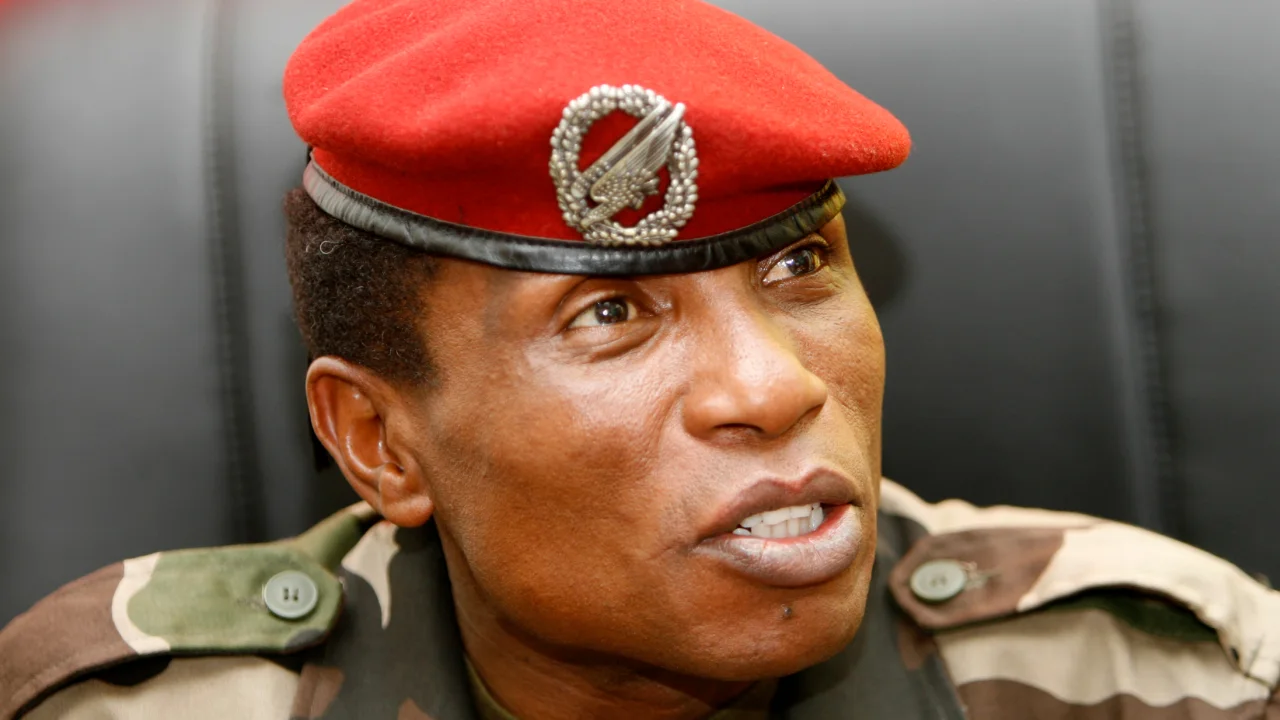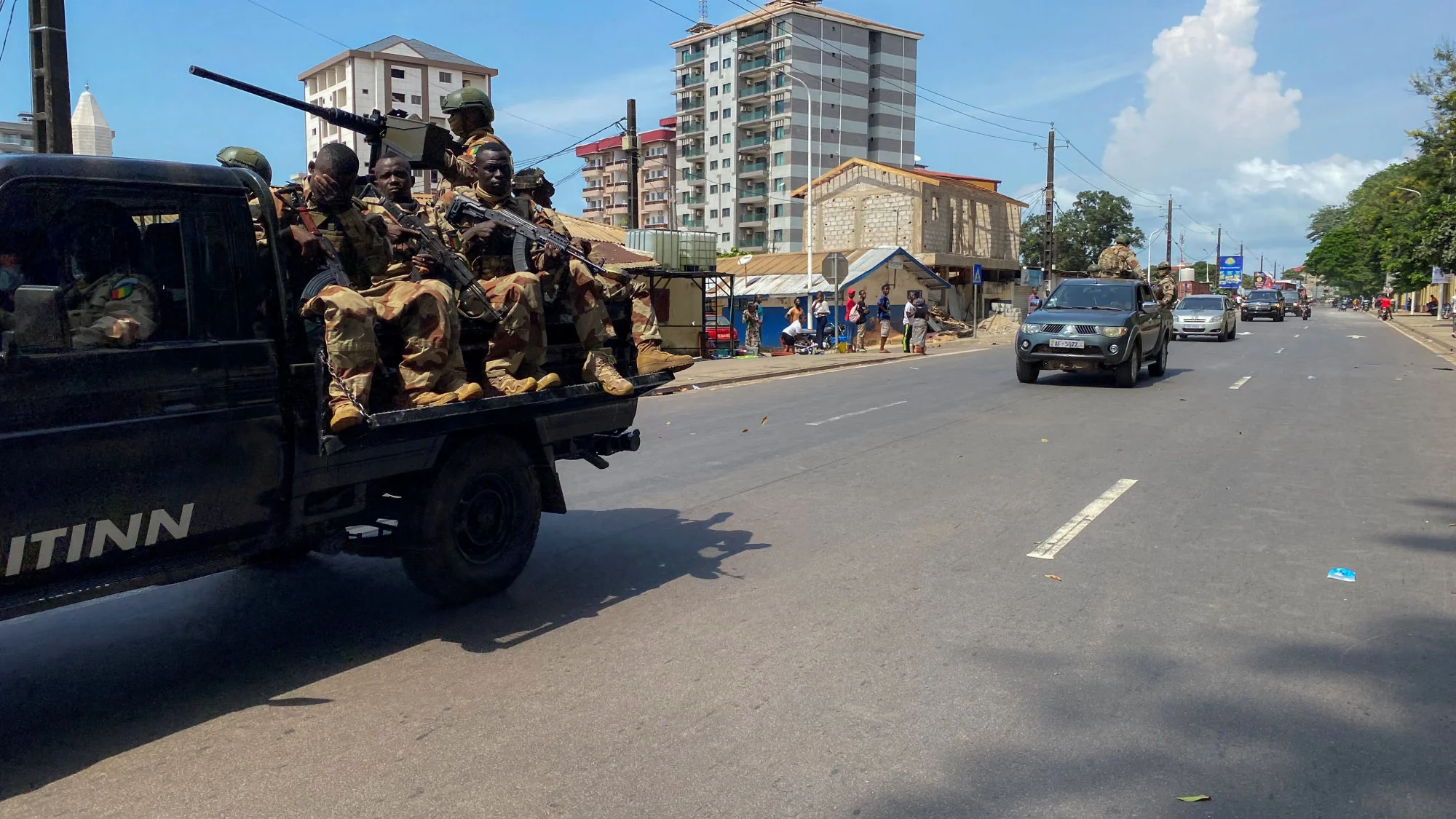Military Junta Leader Moussa Dadis Camara Recaptured After Prison Escape
Guinea's Ministry of Defense announces that Military Junta leader Moussa Dadis Camara recaptured after prison escape.
Author:Dexter CookeReviewer:Hajra ShannonNov 06, 20231.2K Shares240.1K Views

Guinea's Ministry of Defense announces that Military Junta leader Moussa Dadis Camara recaptured after prison escape.
In an audacious operation, Camara was sprung from confinement by heavily armed men, along with three other high-ranking officers, leading to heightened security measures across the city.
Dramatic Escape And Recapture
Camara's escape was short-lived, as he and two of his accomplices, Moussa Tiegboro Camara and Blaise Gomou, were recaptured and are now safely back in Maison Centrale de Conakry, the federal prison in Guinea's capital.
The third officer, Colonel Claude Pivi, remains at large, prompting further security efforts to locate and apprehend him.
Camara and his fellow high-ranking officers have been on trial for their alleged roles in orchestrating a stadium massacre and mass rape by Guinean security forces during a pro-democracy rally on September 28, 2009, resulting in the death of 150 people.
Camara has consistently denied responsibility, instead attributing the atrocities to errant soldiers.
The escape prompted heightened security measures in Conakry, with military vehicles and special forces patrolling the streets, especially in the Kaloum administrative district, where Camara and the other officers were held at the Central House prison.
“„All security measures have been taken to find the last fugitive. I once again call on citizens to continue to freely go about their daily business.- Guinea’s Ministry of Defense
“„It was around 05:00 a.m. (01:00 a.m. ET) that heavily armed men burst into the Central House of Conakry. They managed to leave with four defendants in the trial of the events of Sept. 28 including Captain Moussa Dadis Camara.- Guinea’s Ministry of Defense
Shots were heard in the early hours of the morning, leaving the city's residents on edge.

A Complex Political Landscape
Mamady Doumbouya, a military leader who took control of Guinea in a coup in 2021, represents a wider trend of military leadership throughout West and Central Africa.
Guinea's political situation remains fluid and complex, with Camara's escape and recapture adding another layer of intrigue to the nation's evolving narrative.
Moussa Dadis Camara's detention and trial began in September 2022, representing a significant legal effort to hold high-ranking officials accountable for their actions.
International pressure and expectations for justice have mounted, with the trial representing a notable departure from Guinea's history of impunity for security forces.
The incident raises questions about the military's commitment to reforms undertaken under Colonel Mamady Doumbouya's leadership. While it may not constitute another coup, it certainly has implications for the nation's trajectory.
As the situation unfolds, the city remains heavily guarded, and the international community watches closely.
Hope For A Democratic Future
Colonel Mamady Doumbouya, who took power in 2021, pledged to lead Guinea toward democratic governance. As part of his commitment, he vowed to hand over power to elected civilians within two years, starting in January 2023.
The Forces Vives de Guinee, a coalition of opposition parties and organizations, has expressed challenges and worries about an "emerging dictatorship," though.
The recapture of Moussa Dadis Camara sends a strong message that the pursuit of justice and accountability is paramount in Guinea's quest for a more stable and democratic future.
Final Words
In the complex and evolving political landscape of Guinea, the swift recapture of former military junta leader Moussa Dadis Camara sends a clear message that accountability and justice are priorities in the pursuit of a stable and democratic future.
As Guinea grapples with its history of military leadership and a challenging path to democracy, the incident highlights the significance of ongoing legal efforts and international pressure to ensure that high-ranking officials are held accountable for their actions.
While the nation remains heavily guarded and the situation unfolds, there is hope that Guinea can overcome its past and transition towards a more democratic and inclusive future.

Dexter Cooke
Author
Dexter Cooke is an economist, marketing strategist, and orthopedic surgeon with over 20 years of experience crafting compelling narratives that resonate worldwide.
He holds a Journalism degree from Columbia University, an Economics background from Yale University, and a medical degree with a postdoctoral fellowship in orthopedic medicine from the Medical University of South Carolina.
Dexter’s insights into media, economics, and marketing shine through his prolific contributions to respected publications and advisory roles for influential organizations.
As an orthopedic surgeon specializing in minimally invasive knee replacement surgery and laparoscopic procedures, Dexter prioritizes patient care above all.
Outside his professional pursuits, Dexter enjoys collecting vintage watches, studying ancient civilizations, learning about astronomy, and participating in charity runs.

Hajra Shannon
Reviewer
Hajra Shannona is a highly experienced journalist with over 9 years of expertise in news writing, investigative reporting, and political analysis.
She holds a Bachelor's degree in Journalism from Columbia University and has contributed to reputable publications focusing on global affairs, human rights, and environmental sustainability.
Hajra's authoritative voice and trustworthy reporting reflect her commitment to delivering insightful news content.
Beyond journalism, she enjoys exploring new cultures through travel and pursuing outdoor photography
Latest Articles
Popular Articles